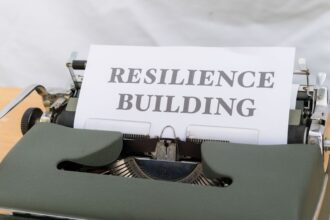In a world that often glorifies self-sufficiency and independence, the concept of hyper independence emerges as a double-edged sword. While being independent can foster resilience and self-reliance, hyper independence takes this trait to an extreme, leading to a range of emotional and relational challenges. You may find yourself priding yourself on your ability to handle everything on your own, but this mindset can create barriers that hinder your personal growth and well-being.
Understanding hyper independence is crucial for recognizing its signs and implications in your life. Hyper independence often stems from a variety of factors, including past experiences, societal expectations, and personal beliefs. You might have learned early on that relying on others could lead to disappointment or rejection, prompting you to adopt a mindset that prioritizes self-sufficiency above all else.
This inclination can be particularly pronounced in cultures that value individualism, where asking for help may be perceived as a weakness. As you navigate through life, it’s essential to reflect on how hyper independence manifests in your behaviors and relationships, as this awareness can pave the way for healthier interactions and emotional well-being.
Key Takeaways
- Hyper independence can lead to difficulty asking for help and avoidance of emotional vulnerability.
- Signs of hyper independence include strained relationships, burnout, perfectionism, and fear of failure.
- Those who struggle with hyper independence may experience a lack of work-life balance and impact on mental health.
- Overcoming hyper independence involves learning to ask for help, embracing emotional vulnerability, and seeking support from others.
- Recognizing the signs of hyper independence and taking steps to address it can lead to healthier relationships and improved mental well-being.
Signs of Hyper Independence
Recognizing the signs of hyper independence is the first step toward addressing its impact on your life. One of the most prominent indicators is an overwhelming sense of self-reliance. You may find yourself consistently opting to tackle challenges alone, even when collaboration could yield better results.
This tendency can lead to feelings of isolation, as you may inadvertently distance yourself from those who genuinely want to support you. It’s important to take a moment to assess whether your desire for independence is serving you or hindering your connections with others. Another sign of hyper independence is a reluctance to share your thoughts and feelings.
You might feel uncomfortable expressing vulnerability, fearing that doing so could expose you to judgment or rejection. This emotional barrier can prevent you from forming deep connections with others, leaving you feeling lonely even in the presence of friends or family. By acknowledging these signs, you can begin to understand how hyper independence affects your emotional landscape and relationships.
Difficulty Asking for Help
One of the most significant challenges associated with hyper independence is the difficulty in asking for help. You may pride yourself on being capable and resourceful, but this can lead to an aversion to seeking assistance when you genuinely need it. The thought of reaching out for support might evoke feelings of shame or inadequacy, making it easier to struggle in silence rather than risk vulnerability.
This pattern can create a cycle where you feel overwhelmed yet refuse to lean on others for support. Asking for help is not a sign of weakness; rather, it is an essential aspect of human connection and collaboration. When you allow yourself to reach out, you open the door to shared experiences and mutual support.
It’s important to challenge the belief that needing help diminishes your worth or capabilities. By gradually practicing vulnerability and seeking assistance when necessary, you can cultivate deeper relationships and foster a sense of community in your life.
Avoidance of Emotional Vulnerability
| Metrics | Data |
|---|---|
| Number of Avoidance Behaviors | 25 |
| Frequency of Emotional Distancing | 3 times per week |
| Impact on Relationships | High |
Emotional vulnerability is often viewed as a double-edged sword; while it can lead to deeper connections, it also exposes you to potential hurt. If you exhibit hyper independence, you may find yourself avoiding emotional vulnerability at all costs. You might convince yourself that sharing your feelings or fears will only lead to disappointment or rejection from others.
This avoidance can create an emotional barrier that prevents you from experiencing authentic connections with those around you. The fear of being vulnerable can manifest in various ways, such as deflecting conversations about your emotions or dismissing your own feelings as unimportant. You may prioritize logic over emotion, believing that maintaining control is paramount.
However, embracing vulnerability can be liberating; it allows you to connect with others on a deeper level and fosters empathy and understanding in your relationships. By gradually allowing yourself to be vulnerable, you can break down the walls that hyper independence has built around your heart.
Strained Relationships
Hyper independence can take a toll on your relationships, often leading to strain and misunderstandings. When you consistently prioritize self-sufficiency over collaboration, those around you may feel sidelined or unappreciated. Friends and family might express concern about your reluctance to share burdens or seek support, but their intentions may be met with defensiveness or dismissal on your part.
This dynamic can create a rift between you and those who care about you. Moreover, the inability to rely on others can lead to feelings of resentment or frustration in relationships. You may find yourself feeling burdened by the weight of expectations—both yours and those imposed by others—while simultaneously pushing away the very people who want to help lighten that load.
Recognizing how hyper independence affects your relationships is crucial for fostering healthier connections and creating an environment where mutual support thrives.
Burnout and Exhaustion
The relentless pursuit of self-sufficiency often leads to burnout and exhaustion. When you take on every responsibility without seeking help or delegating tasks, you risk overwhelming yourself both physically and emotionally. You might find yourself constantly pushing through fatigue, convinced that asking for assistance would be an admission of failure.
This mindset can create a vicious cycle where exhaustion becomes normalized, leaving you feeling drained and unfulfilled. Burnout not only affects your productivity but also impacts your overall well-being. You may experience heightened stress levels, irritability, and a diminished sense of joy in activities that once brought you happiness.
Recognizing the signs of burnout is essential for breaking free from the cycle of hyper independence. By prioritizing self-care and allowing yourself moments of rest and rejuvenation, you can reclaim your energy and restore balance in your life.
Perfectionism and Control
Hyper independence often intertwines with perfectionism and an intense need for control. You may feel compelled to ensure that everything is done “just right,” leading to an overwhelming sense of responsibility for outcomes beyond your control. This perfectionistic mindset can create immense pressure on yourself, making it difficult to accept mistakes or imperfections in yourself or others.
The desire for control can also manifest in various aspects of your life, from work projects to personal relationships. You might struggle to delegate tasks or trust others to contribute effectively, fearing that their efforts won’t meet your standards.
Embracing imperfection and learning to let go of control can be liberating; it allows for creativity, innovation, and deeper connections with those around you.
Fear of Failure
The fear of failure is another significant aspect of hyper independence that can hold you back from pursuing new opportunities or taking risks. You may equate asking for help with admitting defeat or inadequacy, leading to a reluctance to step outside your comfort zone. This fear can stifle personal growth and prevent you from exploring new avenues in both your personal and professional life.
When you allow fear to dictate your actions, you may miss out on valuable experiences that could enrich your life. Embracing failure as a natural part of growth is essential for overcoming hyper independence. By reframing failure as an opportunity for learning rather than a reflection of your worth, you can cultivate resilience and confidence in your abilities.
Lack of Work-Life Balance
Hyper independence often leads to an imbalance between work and personal life. You may find yourself dedicating excessive time and energy to professional responsibilities while neglecting self-care and personal relationships. This imbalance can create feelings of dissatisfaction and disconnection from what truly matters in your life.
To achieve a healthier work-life balance, it’s essential to set boundaries and prioritize self-care activities that nourish your well-being. This might involve scheduling regular breaks, engaging in hobbies that bring you joy, or spending quality time with loved ones. By recognizing the importance of balance, you can create a more fulfilling life that honors both your professional aspirations and personal needs.
Impact on Mental Health
The effects of hyper independence extend beyond interpersonal relationships; they also significantly impact your mental health. The constant pressure to maintain self-sufficiency can lead to feelings of anxiety, depression, and loneliness. You may find yourself trapped in a cycle of negative thoughts, convinced that seeking help would only exacerbate your struggles.
Moreover, the emotional toll of hyper independence can manifest in physical symptoms such as fatigue, headaches, or digestive issues. It’s crucial to acknowledge these signs as indicators that something needs to change in your approach to life and relationships. Seeking professional support or engaging in therapeutic practices can provide valuable tools for navigating the complexities of hyper independence while prioritizing your mental health.
Overcoming Hyper Independence
Overcoming hyper independence requires intentional effort and self-reflection. Start by acknowledging the areas in which you struggle with self-sufficiency and consider how these patterns affect your life and relationships.
Additionally, challenge the belief that asking for help diminishes your worth or capabilities. Begin by taking small steps—whether it’s delegating tasks at work or reaching out for emotional support during challenging times—and gradually build your comfort level with interdependence. Embrace imperfection as part of the human experience; remember that everyone has strengths and weaknesses, and collaboration often leads to richer outcomes than solitary efforts.
In conclusion, while hyper independence may initially seem like a strength, it often masks deeper emotional struggles that hinder personal growth and connection with others. By recognizing its signs and understanding its impact on various aspects of life, you can take proactive steps toward fostering healthier relationships and prioritizing self-care. Embracing vulnerability, seeking support, and cultivating balance are essential components in overcoming hyper independence and creating a more fulfilling life.
Hyper-independence is a behavioral trait where individuals excessively rely on themselves, often as a coping mechanism stemming from past experiences or trauma. This can lead to challenges in forming healthy relationships and seeking help when needed. For those interested in exploring this topic further, an insightful article on the subject can be found on Unplugged Psychology’s website. It delves into the psychological underpinnings of hyper-independence and offers strategies for overcoming its potential drawbacks. You can read more about it by visiting Unplugged Psychology.
WATCH THIS! Hyper-Independence Is Not Strength
FAQs
What are signs of hyper independence?
Some signs of hyper independence include difficulty asking for help, avoiding relying on others, feeling uncomfortable with emotional vulnerability, and a strong desire for control and self-sufficiency.
How does hyper independence affect relationships?
Hyper independence can strain relationships as it may lead to difficulty in forming close connections, challenges in sharing responsibilities, and a lack of emotional intimacy. It can also create feelings of isolation and loneliness for the individual.
What are the potential causes of hyper independence?
Potential causes of hyper independence may include past experiences of trauma or neglect, cultural or societal influences, personality traits, and a fear of vulnerability or rejection.
Can hyper independence be detrimental to mental health?
Yes, hyper independence can be detrimental to mental health as it may lead to increased stress, difficulty in managing emotions, and a lack of support system. It can also contribute to feelings of anxiety, depression, and burnout.
How can someone address hyper independence?
Addressing hyper independence may involve seeking therapy or counseling to explore underlying issues, practicing vulnerability and asking for help, building a support network, and learning to trust and rely on others. It may also involve setting boundaries and finding a balance between independence and interdependence.




